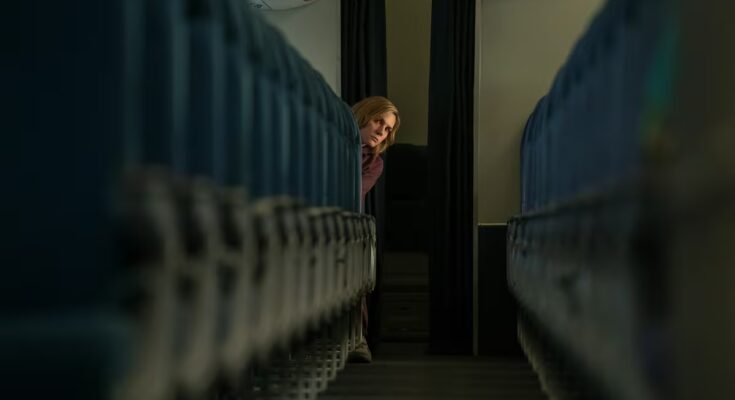Oh, Carol. I realize that the best-known Spanish version of Neil Sedaka’s song is the one by Dúo Dynamico, but in the one sung by Karina, with different lyrics, there is a line that could very well be applied to Carol (Rhea Seehorn), the protagonist of Pluribus: “Look how the world isn’t ending.”
In Vince Gilligan’s series, three episodes of which are already available on Apple TV, humanity as we know it ends and, at the same time, the world moves on, as Fernán Gómez would say. Carol survives with her free will intact an extraterrestrial invasion that transforms all humans except her (and a handful more, scattered across the planet) into one, without desires, without freedom, without emotions. At the same time without wars, without crimes, without conflicts. A swarm destabilized only by Carol’s fits of rage, which caused millions of deaths. Therefore, the goal of this homogeneous pack, whose only imperative seems to be perpetuation, is for Carol to be happy. And Carol, partly due to the stubbornness and desolation typical of those who preserve their individuality in the face of a uniform mass, partly due to the loss of his wife, resists.
As I watched the available episodes, I was reminded of the last series which portrayed an alien invasion to talk about what makes us human. Era Braindead (2016), by Michelle and Robert King. In it, some extraterrestrial insects devoured the brains of Washington DC’s fauna to polarize them and finally destroy the political heart of the United States. Pluribus It is almost the opposite: it is not extreme comparison that puts an end to what makes us human, but the absolute consensus that arises from unique thinking and the absence of individual freedom.
The title, of course, refers to “E pluribus unum” American (Of many one, in Latin), but it led me to remember an essay David Foster Wallace wrote entitled “And plural unibus“, on the influence of television on American writers of his generation. In it, Foster Wallace attributes the dedication to television of his colleagues and himself to a combination that may seem paradoxical, but is not: voyeurism and misanthropy. There is something of this in Carol, who is not by chance a writer, and when she wants to isolate herself from the new hostile and diplomatic world that surrounds her, she locks herself in the house to watch The golden girls. Few better plans for the end of the world.



